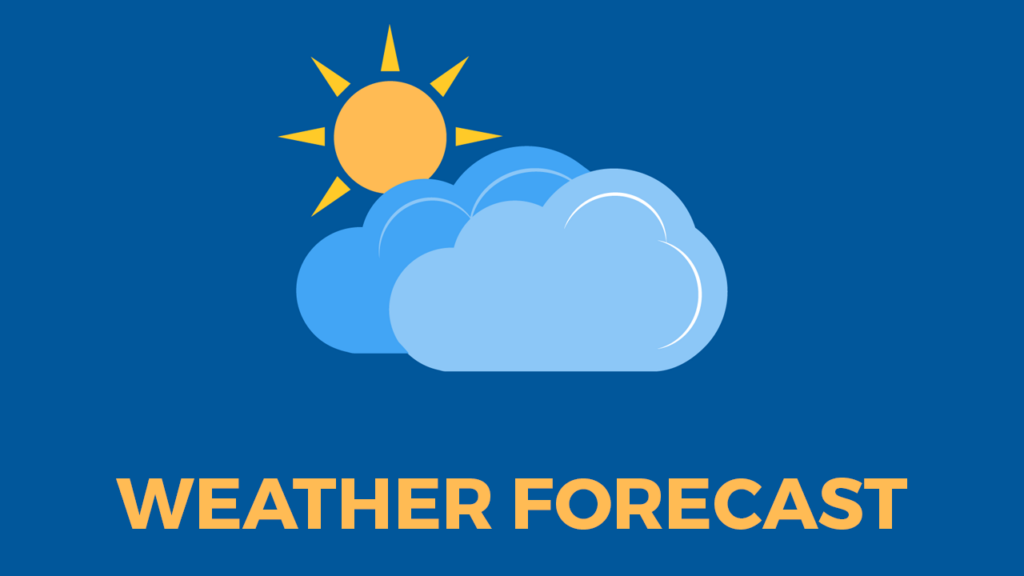NWLL Weather Policy

NWLL will adhere to the following principles regarding weather delays or cancellations (adapted from the Baseball Alberta Weather Policy). The purpose of these principles are to ensure safe play for all participants and volunteers.
In Calgary, weather changes quickly. A decision to postpone a game shall not be made more than 1 hour prior to the scheduled start time. NWLL will use social media (Twitter, Facebook) posts and TeamSnap at 5pm to communicate whether all league play will be canceled for the evening due to inclement weather.
There will be times when a decision will need to be made at the field:
At game time or later, playability is to be determined through discussion between the head coaches of each team.
- The Home Team Coach is responsible for notifying both the UIC/Umpire Scheduler for any games suspended due to weather for Minor Division and above. For Minor and Major Divisions, games will NOT be rescheduled.
- Interlock Division teams must follow District rules and procedures as set out by the D3 Administrator. The Home Team is required to notify the District. For all Interlock play and for Intermediate and above divisions, efforts must be made by both teams to re-schedule the game at the earliest opportunity. Should it be determined by the District that a team is uncooperative in rescheduling the game, a forfeit will be applied to the offending team with a score of 20-0 over 4 innings play (maximum of 5 runs per inning X 4 innings).
Rain or Snow
If play fields are not playable due to rain or snow, the association will strive to reschedule or relocate games or practices that are scheduled on those fields. Inspection of playing fields prior to game time is not always possible, so these decisions may need to be made by the coaches at the time of the game. For Interlock games, the home team coach determines field playability and is responsible to notify the opposing coach and District of game cancellations.
If it begins to rain during a game or practice:
- Determine the direction the storm is moving and how much precipitation is anticipated.
- Evaluate the playing field as it becomes more saturated
- If the playing conditions become unsafe (slippery or poor visibility), suspend play.
- During game play, consult the opposition head coach and the umpire to make a determination as to cancellation or delay of game.
Lightning or Severe Weather
The average lightning strike is 8km long with up to 30 million volts at 100,000 amps flowing in less than 1/10 of a second. The average thunderstorm is 10km wide and moves at a rate of 40km/hr. Once the leading edge of a thunderstorm is within 16km, you are in immediate risk of a lightning strike. This fact is the reason many lightning deaths and injuries occur with clear skies overhead.
The Canadian Lightning Danger Map is available to help identify where recent lightning has struck. If you hear thunder, the storm is within 5km of your location. Halt your activities immediately and seek shelter. Safe shelter is ideally any substantial building. A hard topped metal vehicle with the windows rolled up is a second option. Dug-outs, sheds etc, are not safe.
When considering resumption of any athletics activity, it is recommended that everyone should ideally wait at least thirty (30) minutes after the last sound of thunder before returning to the field.
Cold Weather
If the temperature (adjusted for wind chill) is at or below 8 degrees celsius, game play should be suspended. Coaches may use their discretion for practices, but should encourage all players to dress appropriately for the weather to prevent frostbite and cold exposure, including jackets, toques and gloves when appropriate.
Air Quality
AQHI of 7 or higher means that play will be suspended. Host locations must monitor AQHI levels and notify umpires when levels are 7 or higher to suspend the game. The Air Quality Health Index (AQHI) is a recognized risk management measurement which describes a local reading of air quality as it relates to human health. An AQHI index of over 7 indicates a “high risk” from air pollutants. An AQHI index of between 4 and 6 indicates ongoing AQHI air monitoring should be initiated in order to identify to the umpire and Tournament Director if the index should reach 7 or higher. In practice situations, athletic activity should be adjusted through reduced intensity, reduced duration, and providing rest periods.
The AQHI can be found online or use the AQHI Canada app for more specific stations.
Heat
Heat illness can occur anytime a participant exercises vigorously in hot conditions. It may also occur with prolonged exposure to hot weather, even if the activity is low intensity. If it is hot and/or humid a nutrition & hydration strategy and a plan to maintain body temperature should be part of your pregame preparation. The information provided below offers valuable information on how to maintain performance while remaining healthy in hot & humid conditions.
Go to the Environment Canada website and specify your location or closest reporting station. If the temperature (adjusted for humidity ‘feels like’) is at or above 35 degrees celsius, game play should be suspended.
